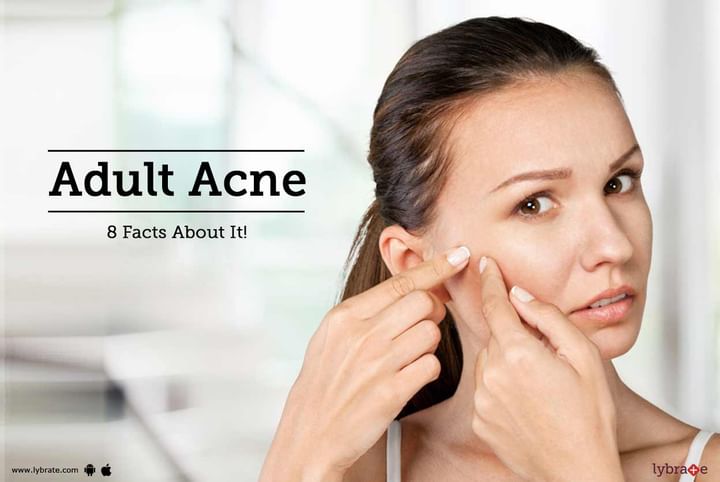Get the App
For Doctors
Login/Sign-up
Last Updated: Oct 02, 2023
BookMark
Report
Adult Acne - 8 Facts About It!
Dr. Vivek MehtaAesthetic Medicine Specialist • 12 Years Exp.Diploma In Trichology - Cosmetology, PG Diploma In Clinical Cosmetology (PGDCC), Diploma In Aesthetic Mesotherapy, PG Diploma In Clinical Research
Acne is often misunderstood to be a condition that only affects teenagers. However, acne can develop even when a person is in his or her thirties. This sort of acne is known as adult acne. As wth any other health condition, there are a number of myths associated with adult acne. Here are 7 facts you should know about adult acne.
- You’re not the only one. Adult acne is a fairly common skin condition. It affects both men and women though the latter are more susceptible to it. Even people in their 50s can develop acne.
- Adult acne and teenage acne is not the same. Acne that develops in the teenage years tends to affect the forehead area. It consists of mainly white heads and black heads that develop as a result of clogged pores.
- On the other hand, adult acne affects the lower half of the face appears in the form of bigger, red nodules. These often recur in the same place.
- Adult acne in women is mostly due to hormonal changes. A woman’s body is constantly facing hormonal changes during menstruation, pregnancy, menopause or as a result of changing birth control methods. These hormonal changes are often accompanied by acne breakouts. A chronic acne breakout can also indicate serious hormonal imbalances or conditions such as polycystic ovarian syndrome.
- Stress is a primary contributor to adult acne. Stress and acne have a cyclic relationship with each contributing to the development of the other. Chronic stress can lead to hormonal imbalances which further lead to the development of acne. Frustration caused by the appearance of acne can worsen the stress and if not controlled this can further aggravate acne.
- Using the right skin care products can prevent adult acne. Washing your face multiple times may not prove to be the best way to prevent acne as this rids the skin of necessary oils. When it comes to skincare, it is essential to choose the right product. Ideally, choose cleansers that contain benzoyl peroxide or salicylic acid and non-comedogenic skincare products. Products that contain tea tree oil can also help reduce acne inflammations.
- Do not pick the pimples. Acne may be a temporary condition but can leave lasting effects if the pimples are picked or manually burst. Doing this can lead to the formation of permanent scars. Acne scars range from mild to severe and can later be treated with a range of procedures including dermabrasion, chemical peels and laser.
- What you eat can affect your acne. High glycemic index foods and dairy can lead to hormonal imbalances and have been linked to adult acne breakouts. This includes refined carbohydrates, processed sugars and all forms of milk. If you wish to discuss about any specific problem, you can ask a free question.



+1.svg)
